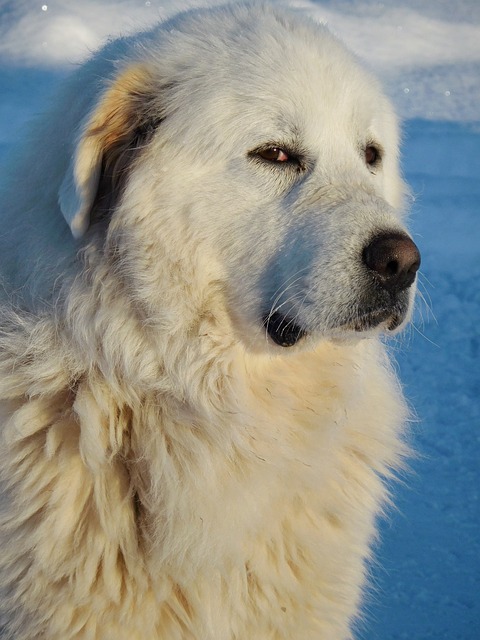


The Great Pyrenees is a large and majestic dog breed originally bred to guard livestock in mountainous regions. Known for its gentle and calm nature, the Great Pyrenees is highly protective of its family and home. It is an independent thinker, often aloof with strangers but loyal and affectionate with its loved ones. Its thick, double coat and impressive size make it an eye-catching breed. Despite its guarding instincts, it is generally good-natured and enjoys being with family members, especially when they are in a calm and secure environment.
The Great Pyrenees has a long history dating back thousands of years. Originating in the Pyrenees Mountains, which lie between France and Spain, this breed was primarily used to guard sheep and other livestock from predators, including wolves and bears. They were highly regarded for their courage, loyalty, and intelligence. The breed’s ability to work independently, without requiring much supervision, made them ideal for the rugged terrain of the Pyrenees. The Great Pyrenees was introduced to North America in the 19th century and has since become a beloved companion dog, known for its role as a guardian and family pet. The breed was officially recognized by the American Kennel Club (AKC) in 1933.
The Great Pyrenees is a large, powerful dog with a strong, muscular build. Males typically weigh between 100 and 120 pounds, while females range from 85 to 100 pounds. They stand around 25 to 32 inches tall at the shoulder. One of the most distinctive features of the breed is its thick, double coat, which is white, with occasional markings in shades of gray, tan, or badger. The coat is dense and weather-resistant, designed to protect the dog while working outdoors in harsh conditions. The breed also has a long, flowing tail that curls over its back, and its dark, almond-shaped eyes give it a gentle expression. Despite their size, Great Pyrenees move with surprising grace and agility.
The Great Pyrenees is known for its calm, gentle, and independent nature. They are typically very affectionate and loyal to their family, forming strong bonds with their owners. While they can be reserved around strangers, they are generally not aggressive but are highly protective. This breed is known for its "guard dog" instincts and will act quickly to defend its home and family if it senses a threat. Despite their protective nature, Great Pyrenees are typically patient and good with children and other pets, especially if raised with them. However, due to their independent nature, they may sometimes act on their own instincts and be less eager to follow commands than some other breeds.
The Great Pyrenees is a moderate energy dog that requires regular exercise but is not as active as some other working breeds. They enjoy walks and gentle play, but their exercise needs are less intense than those of other herding or working dogs. A daily walk and some time spent outdoors will keep them healthy and happy. Due to their history as livestock guardians, they are accustomed to roaming large areas, so they may enjoy time in a securely fenced yard or large property. They are not typically high-energy dogs but do need mental stimulation and interaction with their family to avoid boredom. Without adequate exercise, they may become lazy or overweight.
Great Pyrenees dogs are intelligent but also independent and sometimes stubborn, which can make training a challenge. They are not as eager to please as some other breeds, so training requires patience, consistency, and positive reinforcement. Early socialization is important to help them become well-adjusted and comfortable with different people, animals, and environments. Socialization helps ensure they are less likely to be overly protective or aggressive towards strangers. While they can be trained to follow basic commands, their strong guarding instincts may lead them to think for themselves, especially in situations where they feel their family is threatened.
The Great Pyrenees is generally a healthy breed, but like all dogs, they are prone to certain health conditions. Some common health issues include hip dysplasia, elbow dysplasia, hypothyroidism, and progressive retinal atrophy (PRA). Regular veterinary checkups, a balanced diet, and proper exercise can help prevent many health issues. Grooming is a key part of caring for a Great Pyrenees due to its thick double coat. They shed year-round and require regular brushing, especially during their seasonal shedding periods. In addition, their large size means they may be prone to joint problems, so providing them with a comfortable resting space and managing their weight is important for their long-term health.
The typical lifespan of a Great Pyrenees is between 10 to 12 years. While they are generally a healthy breed, their large size can sometimes lead to shorter lifespans due to age-related issues, such as arthritis or heart disease. Providing a well-balanced diet, regular exercise, and regular veterinary care can help your Great Pyrenees live a long, healthy life. Monitoring their health, particularly their joints and weight, is important as they age.
© copyright Dog Compendium 2024 - 2026